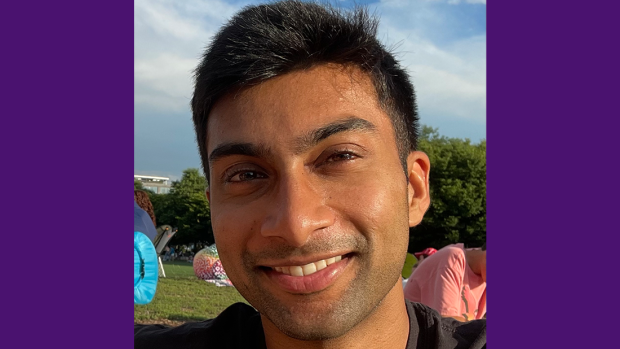Ph.D. candidate Karthik Garimella recognized for AI research

Karthik Garimella was named a “Rising Star” by MLCommons, an Open AI Engineering Consortium.
When the average computer user logs on to a popular site like Facebook or Google, they may give little thought to the tradeoff they are making: in exchange for a service (searching the internet, for example, or posting vacation selfies), they are giving up some degree of privacy and potentially allowing unauthorized secondary use of their information.
“Say you use an AI platform like ChatGPT or Gemini,” Karthik Garimella, a PH.D. student in the Department of Electrical and Computer Engineering, explains. “You type in a prompt, and it gets sent to the cloud, and although it’s secured during transmission, at the end of the day, the company still has access to it, which is concerning, especially if it contains sensitive or personal information.”
Garimella is researching ways to close that privacy “loophole.” Working with Assistant Professor Brandon Reagen, a member of NYU's Center for Cybersecurity, he focuses on multi-party computation (enabling multiple parties to pool data for computing tasks and access the resulting output without revealing information from any individual party) and homomorphic encryption (which enables mathematical operations to be performed on encrypted data without affecting the encryption), as well as the privacy and security of machine-learning (ML) systems.
Garimella, who earned a bachelor’s degree in physics from Hendrix College and a master’s degree in computer engineering from Washington University in St. Louis before coming to Brooklyn for his doctoral studies, was recently named a “Rising Star” by MLCommons, an AI consortium dedicated to encouraging open collaboration and improving the accuracy, safety, speed and efficiency of AI technologies. The organization’s Rising Stars initiative honors young researchers working at the intersection of machine learning and systems and provides them with workshops, networking opportunities, and other resources.
“ML is a fast-growing field with rapid adoption across all industries, and we believe that the biggest breakthroughs are yet to come,” says Vijay Janapa Reddi, MLCommons VP and Research Chair and steering committee member of the Rising Stars program. “By nurturing and supporting the next generation of researchers, both domestically and globally, we aim to foster an inclusive environment where these individuals can make groundbreaking contributions that will shape the future of ML and systems research. The Rising Stars program is our investment in the future, and we are excited to see the innovative ideas and solutions that these talented researchers will bring to the table.”
Reagen was unsurprised that Garimella, who is currently interning at NVIDIA, was chosen by MLCommons for the competitive program.
He is a fantastic student whose academic talent, rigor, and creativity exemplify everything we hope for in a Tandon doctoral candidate. I predict that his work will make a major impact.”
— Assistant Professor Brandon Reagen,
Despite the accolades, Garimella remains characteristically modest. “The first thing to consider with systems research is that, as the name implies, you’re looking at an entire system,” he says. “I’m working on one aspect — privacy — while others are considering issues of latency or sustainability. It’s all important. Another thing to consider is that research is a collaborative effort. The paper that initially caught the attention of MLCommons has the names of my fellow researchers on it, and they all deserve credit.”




